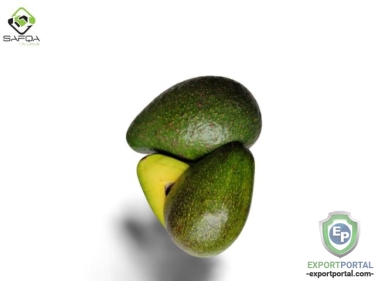Couldn't find the product you want?
Fill out this form to request the product.
Exports

Export Portal is a global social hub for Ethiopian exporters and importers to connect with global markets. Building your pages on Export Portal gives you an excellent opportunity to promote your business on a global scale and find new markets for your products over today's competitive global business environment.
The directory of Ethiopian Exporting Companies allows you to search for the famous coffee brands of Ethiopia, High Quality Ethiopian Gold Jewelry Products, Ethiopian Leather Products, Luxury Leather-made products, Ethiopian Pulses & Oil seeds, Ethiopian Flowers and many other popular goods made in Ethiopia.
Coffee is undoubtedly one of the most popular export commodity in Ethiopia. In 2007, the country even signed an export partnership deal with Starbucks, the world's largest coffeehouse chain. Not surprisingly, the Ethiopian coffee has been ranked as the best in the world by an international group of coffee connoisseurs. It is a top export for the country. But at home it is considered to be a source of pride.
Ethiopia main exports are gold, coffee, live animals, oilseeds, flowers and khat. Ethiopia main export partners are Switzerland, Somalia, China, Sudan and Saudi Arabia.
Join Export Portal today, to source a fabulous collection of products made in Ethiopia.
Customs requirements of Ethiopia
Ethiopia Customs Contact Information
Website: http://www.erca.gov.et/
Email: gymY@revenue.gov.et
Ethiopia is a landlocked country situated in the Horn of Africa. It is bordered by Eritrea, Djibouti, Somalia, Sudan and Kenya. Ethiopia is one of the founding members of the UN, the Group of 24, the Non-Aligned Movement, the Common Market for Eastern and Southern Africa (COMESA) and the African Union.
Import Regulations
Who can import to Ethiopia? According to Regulations No. 270/2012 or 270/2005 EC, Import trade (excluding LPG, bitumen, and raw materials imported by foreign investors who are in the manufacturing industry) in Ethiopia is exclusively reserved for domestic investors.
A businessperson who wants to engage in import trade in Ethiopia must be registered with the Ministry of Trade, which regulates imports, and obtain a trading license. Obtaining a trading license is easy and takes a much lesser time than it used to some years ago.
Import Ban or Quantitative Import Restrictions
Except for items which are socially and morally harmful, no import ban or quantitative import restrictions exist.
However, some imports must meet the standards of the previous Quality and Standards Authority of Ethiopia (QSAE) who split into four entities. Now the regulatory body is named as Ethiopian Standards Agency.
Medicines and medical supplies must be registered with the Drug Administration and Control Authority (DACA) of Ethiopia.
No person shall import into Ethiopia any plant or plant product, including seeds as legally specified, not duly authorized for import by the Minister of Agriculture. All imported plants and other articles liable to be infested or infected with plant pests are subject to quarantine.
Export Regulations
According to Regulations No. 270/2012 or 270/2005 EC ,export trade of raw coffee, chat, oil seeds, pulses, hides and skins bought from the market and live sheep, goats and cattle not raised or fattened by the investor is exclusively reserved for domestic investors.
Businesses that wish to export from Ethiopia should know the export procedures needed to obtain export permit by commercial banks; should prepare Application for Quality Testing and Certification to obtain Export Authorization Certificate from the Quality and Standards Authority of Ethiopia; should fill the Customs declaration.
Documents required for Export Permit Approval:
- Duly signed contract by seller & buyer
- Undertaking letter of the customer that consignment will be settled within a maximum of 90 days from date of the Foreign Exchange Permit for Cash Against Document (CAD) mode of payment and Authenticated message of L/C opened for Letter Credit mode of Payment.
- Seller's invoice
- Export License Valid for the year
- Tax registration certificate (TIN certificate)
- Export permit application form duly filled, signed & stamped (as appropriate) by the customer.
NBE (National Bank of Ethiopia) issues delinquent list of exporters periodically. Customer’s name should not appear in the delinquent exporters list of NBE for the period. If the name appears, there should be subsequent list indicating the given customer has cleared all outstanding items at NBE.
Application for Quality Testing and Certification:
When export products are ready, make arrangements for suitable packaging and apply to the Quality and Standards Authority of Ethiopia for quality testing, and acquire the Export Authorization Certificate.
Customs Declaration:
To avoid costly delays, the exporter declares all facts about the export consignment, and all supporting original documents should be forwarded to the Customs Clearing Agents to enable customs formalities and authorization of the dispatch of the export goods. Accordingly, the exporter must hand over the Export Permit, the copy of the Customs Declaration Annex form, the Ethiopian Customs Declaration form, the Certificate of Origin, and the special movement forms/certificates (the EURI Movement Certificate and the GSP form A) to the clearing agents.
Exporters, VAT and VAT Registration
According to the Value Added Tax Proclamation (285/2002) and the Regulation by the Council of Ministers on VAT (Regulation 79/2002), all exports of goods and services are liable to VAT at the zero rate. This means that VAT is charged at 0% (or no VAT has to be charged). However, more importantly an exporter is entitled to reclaim the VAT on all the goods and services purchased to produce the exports.
But since this still means an exporter is still making taxable supplies even at a zero rate, the law requires the exporter to register if the turnover exceeds the registration limits.
Ethiopian Standards Agency website: http://ethiostandards.org/
Source:
http://www.2merkato.com/articles/import-and-export/2481-import-and-export-regulations-in-ethiopia
